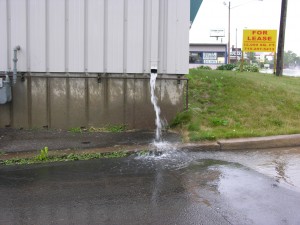Thursday, October 18, 2012
12:00 PM – 1:00 PM CDT
PRESENTED BY:
UW-Extension’s Natural Resources Program, WDNR, and Water Star Wisconsin
PRESENTERS:
Ann Dansart Hirekatur – P.H., CSM, MSA Professional Services
Joe Eichsteadt – Design Engineer, City of Wisconsin Rapids
John Edlebeck – Director of Public Works, City of Waupaca
DESCRIPTION:
 Municipal Water Resource Management – WEBINAR SERIES 2012
Municipal Water Resource Management – WEBINAR SERIES 2012
In times of tight budgets and rising program costs, many Wisconsin communities have turned to stormwater utilities to fund their stormwater management programs. In fact, over 80 Wisconsin communities now fund their stormwater programs via stormwater utilities. Many more communities are either currently considering the feasibility of or are in the process of forming utilities. Stormwater utilities can address issues such as local flooding, drainage relief, regulatory compliance, municipal “housekeeping”, and maintenance and replacement of aging and/or undersized infrastructure. In this first part of this webinar, Ann Hirekatur, PH, CSM and Joe Eichsteadt, PE will provide an overview of stormwater utilities in Wisconsin, including who has them and emerging trends in rates, rate structure types and credit policies. Ann will suggest some first steps and keys to success for communities considering a stormwater utility. Joe will present an overview of Wisconsin Rapids’ utility, including the development process, what it’s funded over the years, and how things are working today.
In the second part of the program, John Edlebeck from Waupaca, will discuss an innovative way his community has used public funds to protect water quality. When Waupaca started to detect high levels of nitrates in its groundwater supply from fertilizer activities on farms near city wells, it tackled the challenge head on. The city could not restrict the use of fertilizer on farms near city wells, so it instead offered incentives. Nitrates are still a concern, but since the cropping agreement began, levels in the city’s water have generally remained well within acceptable limits.
This is part of the Municipal Water Resource Management Webinar Series.



